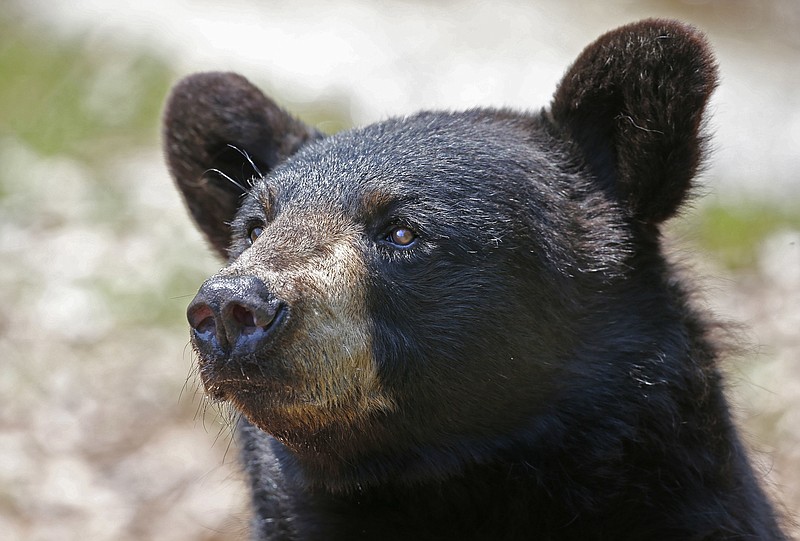There is something about bears. As hunters, they capture our hunter's heart, our psyche, our spirit.
The whitetail deer is a wonderful game animal, and small game and waterfowl are blessings given to us on this earth, but bears are different. An eastern whitetail hunter, sitting in a tree stand, may hardly notice when does and small bucks pass by. If a bear wanders through, he may remember it the rest of his life.
Bears are different.
They wander throughout ancient folklore and mythology. The Greeks gave us Callisto, who was transformed into a bear and then became the constellation Ursa Major, the Great Bear. Native American folklore is rife with stories of bears, which they saw as keepers of dreams because the bear sleeps through the winter. The Big Dipper constellation was seen as a bear in Native American and Hebrew tradition. The bear has fascinated us since the first group of hunters sat poking sticks into the fire.
Part of this fascination is the fact that bears are predators and certainly big enough to take you on as prey. The black bear may be listed as an omnivore, but part of what they eat is meat. While not in the size class of grizzlies and coastal brown bears, the black bear, Ursus americanus, can be an incredibly powerful predator.
In Alaska, I was surprised to learn that most predatory bear attacks are done by black bears, not grizzlies, browns or polar bears. This type of attack is rarer in the eastern United States, but it happens. We are hunting an animal that could be hunting us.
Bears are different.
Early settlers in America found bears in abundance and hunted them for the meat, hides and fat. Bear grease has been used for everything from fuel for lamps to waterproofing, medicinal purposes, hair grooming and a cure for baldness. Early American heroes such as Davy Crockett and Daniel Boone acquired much of their fame through their adventures with bears. Settlers and farmers had no patience with any form of predator, and the other apex predators — wolves and the cougar — soon disappeared from most of their range east of the Big Muddy. Bears, however, hung on.
Modern conservation practices pulled bruins from the brink of disappearing in some areas, and we now have huntable populations of black bears in states where they have not roamed for more than 100 years. Closing hunting seasons until female bears hibernate (sows generally go to bed before the males), closing hunting seasons altogether and even relocating wild bears have led to soaring bear populations.
Several state game agencies in the East now grapple with an overabundance of black bears around cities and towns. Bears are intelligent, adaptable and incredibly strong. Once they develop a taste for your pizza and other dinner scraps in the garbage and your pet food in the garage, they are going to tear something up, count on it.
This may be the best time to be a bear hunter since Dan'l Boone. Your granddad can't tell you the bear hunting was better in his day, because it wasn't. From the trackless woods of Maine to the Canebrake swamps of the Deep South, there are a lot of bears and a lot of places and ways to hunt them.
Black bears have always fascinated me. I like to watch them. I enjoy their antics. There is something about looking around, and here comes a big bear strolling through the woods. He is so black and so pretty in that fur coat. For a minute, you don't believe what you are seeing. It's a bear!
I just like them.
Having said that, I have been in on the demise of a lot of black bears. Conservation officers, game wardens, natural resources police officers or whatever you call them in your state often get calls on problem bears. In West Virginia, the Wildlife Division of DNR does a lot of work setting culvert traps (like a big box trap) for nuisance bears. There were times over the years that the only recourse that I had for a bear problem was with a firearm.
Now, folks, I know some of you out there do not like to hear about a problem animal being put down, and I respect that. The truth is, live trapping and moving most (I said most) nuisance bears does not work. Once the animal gets used to living out of dumpsters and finding goodies on your back porch, he is not going back to living in the wilderness. If you got a taste for Domino's pizza scraps, would you go back to eating acorns and poke berries?
Some would say these are man-made problems and not the bear's fault. I would agree, but I am just relating that the officer on the scene usually just has to deal with the situation, and he has to think about public safety first. I do not want to blow the chance of bear attacks out of proportion, but there have been some around the country in the past few years. The stark truth is that a bear is a large predator, and sometimes predators do what predators do.
Whether you think of them as a fearsome predator or the clownish Baloo in Rudyard Kipling's "The Jungle Book," there is no doubt bears fascinate us. We have a lot of bears, and I think we will for a long time.
I'm happy about that.
"Guns & Cornbread" is written by Larry Case, who lives in Fayette County, W.Va. You can write to him at larryocase@gmail.com.
